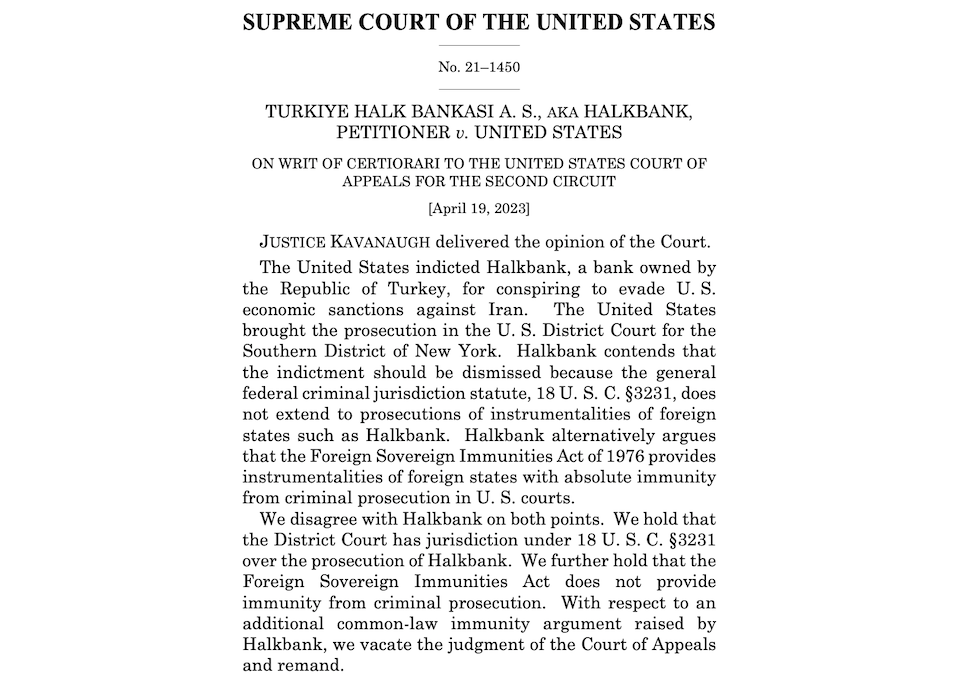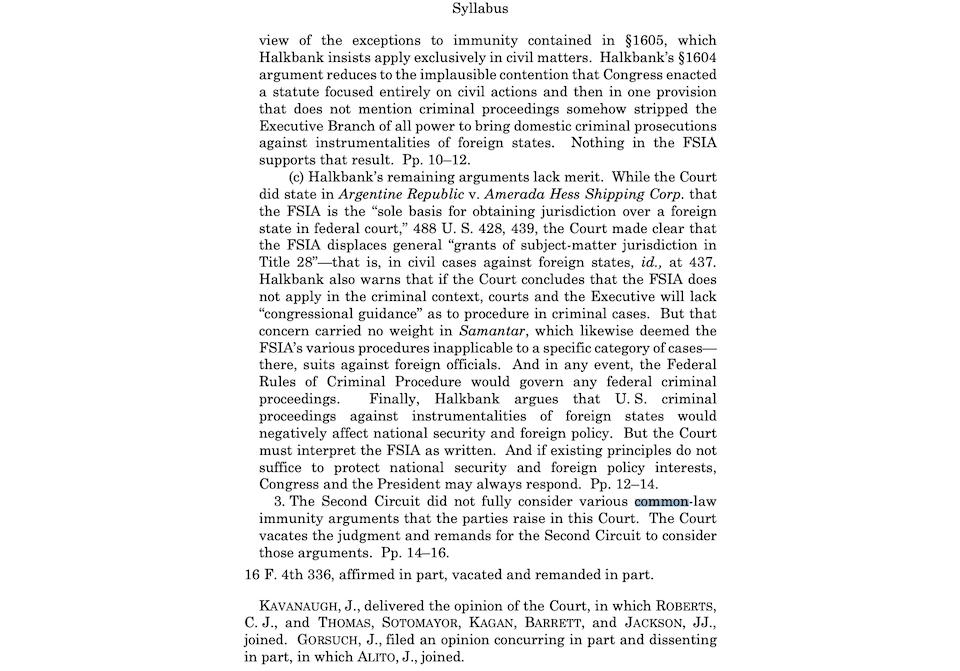
The U.S. Supreme Court, in today’s ruling, allows a state-owned Turkish bank to Hulkbank try once again to avoid criminal charges that could be brought against him in the United States for helping Iran circumvent US economic sanctions.
Members of the Supreme Court overruled the decision of the lower court, which cleared the way for prosecution. In the same context, they are now asking the Manhattan-based 2nd U.S. Circuit Court of Appeals to review the legal line by which Halkbank is essentially trying to dismiss the case.

In 2019, Turkish state bank Halkbank was charged in New York with bank fraud, money laundering and conspiracy related to its alleged use of services and companies in Iran, Turkey and the United Arab Emirates to avoid and circumvent US sanctions.
Halkbank, for its part, denied all allegations. However, at the same time, she argued that she could not be prosecuted precisely because she belonged to the Turkish state, which, according to the Turkish defense line, should ensure her “state immunity” as a foreign society.
The US Supreme Court has rejected the bank’s argument that it is protected by the Foreign Sovereign Immunities Act (FSIA) of 1976, which limits the jurisdiction of US courts over lawsuits against foreign states. However, the majority of the Supreme Court held that the 2nd Circuit Court of Appeals did not fully consider whether the bank was immune under “common law” principles.

The administration of U.S. President Joe Biden has said that the FSIA does not apply to criminal prosecutions, and even if it did, Halkbank’s actions fall under the State Immunity Exemption Act because it is business-related misconduct.
The US government argued in the same context that the case was not about prosecuting a sovereign government and that it had been pursuing criminal cases against foreign state-owned companies for decades.
A U.S. Justice Department lawyer said in January that the Halkbank ruling could allow any foreign state-owned enterprise to “become a clearing house for any federal crime, including election interference, theft of nuclear secrets or evasion of sanctions, and funneling billions of dollars into government agencies.” . which, however, is under an American embargo.”
U.S. Attorney’s Office accused Halkbank of converting oil proceeds into gold and then into cash for Iran’s benefit, as well as justifying the transfer of oil proceeds under the guise of sending food.
They also accused Halkbank of helping Iran covertly transfer $20 billion using, among other things, the US financial system.
In 2021, the 2nd U.S. Circuit Court of Appeals in Manhattan ruled against Halkbank, concluding that even if the FSIA defends the bank, the conduct it is accused of falls under the business exception.
However, the US Supreme Court with today’s decision will return the case to the Court of Appeals.
According to Reuters
Source: Kathimerini
Anna White is a journalist at 247 News Reel, where she writes on world news and current events. She is known for her insightful analysis and compelling storytelling. Anna’s articles have been widely read and shared, earning her a reputation as a talented and respected journalist. She delivers in-depth and accurate understanding of the world’s most pressing issues.